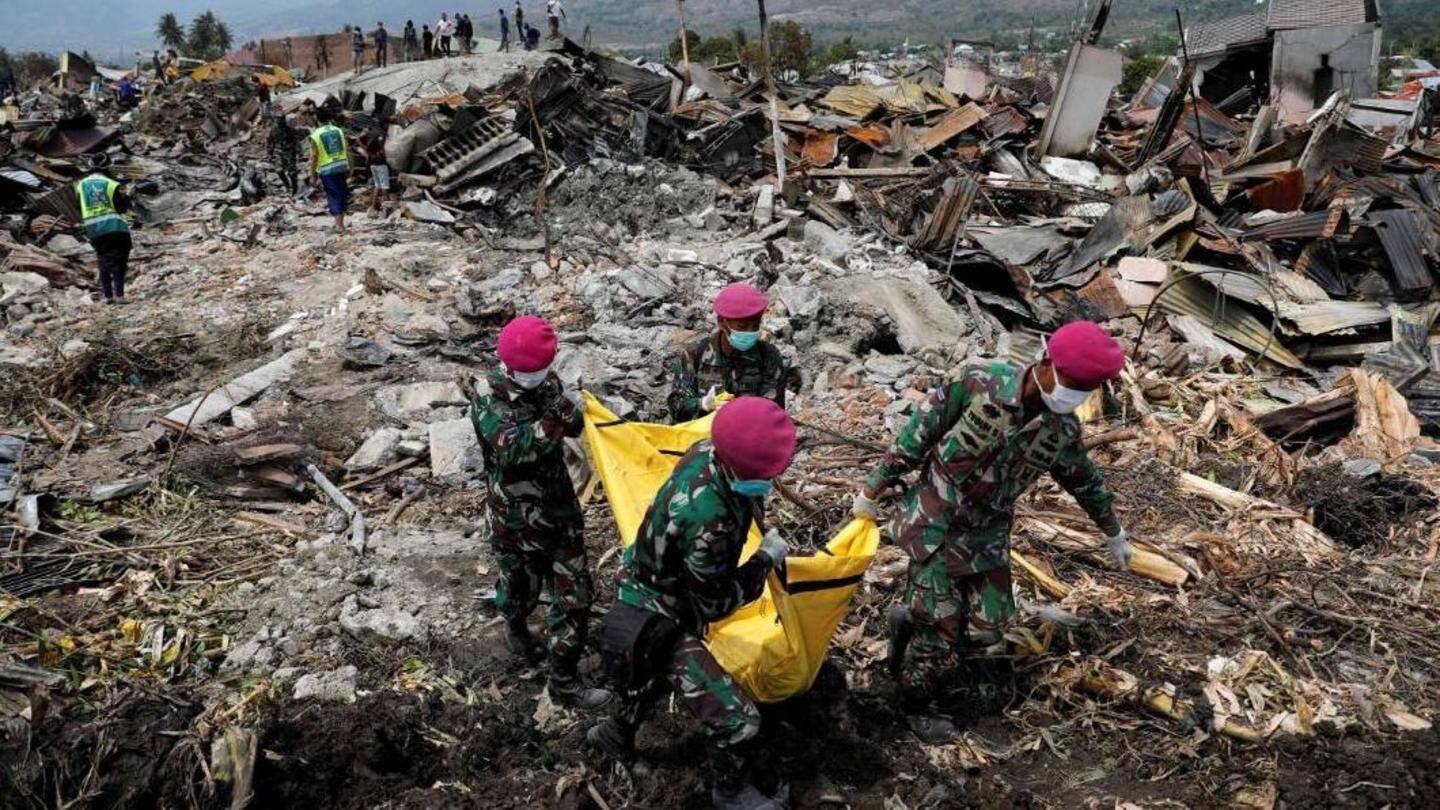#IndonesiaQuakeTsunami: Death toll reaches 1,944, number expected to rise
What's the story
Nearly 2,000 bodies have been recovered from Palu since an earthquake and tsunami struck the Indonesian city, an official said today, warning the number would rise with thousands still missing.
The death toll from twin disaster on Sulawesi island has reached 1,944.
"That number is expected to rise because we haven't received orders to halt search for bodies," said local Military Spokesman M Thohir.
Count
Around 5,000 people are believed to be missing: Authorities
Authorities said as many as 5,000 are believed to be missing in two hard-hit areas (Balaroa and Petobo) since the September 28 disaster.
Hopes of finding anyone alive have faded and search for survivors amid the wreckage has turned to gathering and accounting for the dead.
The government said it will declare those communities flattened in Palu as mass graves and leave them untouched.
Search operation
Search for missing people would continue till October 11
The disaster agency, Palu quake taskforce, said the official search for unaccounted would continue until October 11 at which point they would be listed as missing, presumed dead.
Gopal, whose aunt and uncle are missing, said, "Even if they (search teams) stop looking, we will still try to find them ourselves."
The 40-year-old is a resident of Balaroa, one of the hardest hit neighborhoods.
Efforts
Rescuers struggling to extract decomposed bodies from tangled mess
Excavators and rescuers combed Balaroa today, where a massive government housing complex was all but swallowed up by the disaster.
Rescuers struggled to extract decomposing bodies from the tangled mess left behind.
Petobo, a village cluster, was subsumed when vibrations from 7.5-magnitude quake turned the soil to quicksand, a process known as liquefaction.
Relief efforts have escalated to assist 200,000 people in desperate need.
Aftermath
Food, clean water in short supply; many surviving on handouts
Food and clean water remain in short supply, and many are dependent entirely on handouts to survive.
Helicopters have been running supply drops to more isolated communities outside Palu, where the full extent of damage is still not entirely clear.
Red Cross said it had treated over 1,800 people at medical clinics and administered first-aid to a similar number in the immediate disaster zone.
